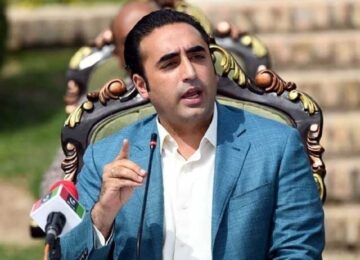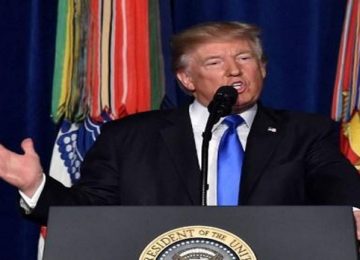WASHINGTON: The United States said on Wednesday it was setting up an outside, professionally-run fund to manage $3.5 billion in Afghanistan’s reserves, concluding it cannot trust the Taliban leadership with the country’s money.
The decision comes after talks between the Taliban and the United States failed to convince President Joe Biden’s administration that it should hand over assets frozen when the militants returned to power 13 months ago, despite the dire humanitarian needs in Afghanistan.
The new Afghan Fund, based in Geneva, will be put in charge of core central bank functions such as paying Afghanistan’s international debt, electricity imports and for future necessities such as printing currency.
In a letter to Afghanistan’s central bank, US Deputy Treasury Secretary Wally Adeyemo voiced regret that it had not addressed US concerns including demonstrating independence from the Taliban, enforcing pre-Taliban commitments against counter-terrorism funding and money laundering, and bringing in a reputable outside monitor.
Treasury official says America cannot trust Taliban leadership with the country’s money; Afghan central bank terms transfer of reserves ‘unacceptable’
“There is currently no institution in Afghanistan that can guarantee that these funds would be used only for the benefit of the people of Afghanistan, including DAB,” he wrote, using the acronym of the central Da Afghanistan Bank.
“Until these conditions are met, sending assets to DAB would place them at unacceptable risk and jeopardise them as a source of support for the Afghan people,” he wrote in a letter.
“The Afghan Fund will protect, preserve and make targeted disbursements of that $3.5 billion to help provide greater stability to the Afghan economy,” the US Treasury said in a statement.
US officials said that no money would go to the Afghan central bank, known as DAB, until it is “free of political interference” — diplomatic parlance for replacing the bank’s top Taliban officials, two of whom are under US and UN sanctions, with banking professionals — and anti-money laundering safeguards are instituted.
“Until these conditions are met, sending assets to DAB would place them at unacceptable risk and jeopardise them as a source of support for the Afghan people,” US Deputy Treasury Secretary Wally Ademeyo said in a letter to the central bank’s Supreme Council.
The DAB said the central bank’s reserves belonged to the Afghan people and their purpose was to ensure currency stability, the strength of the financial system, and facilitating international trade.
“Any decision regarding the assignment, use or transfer of the reserves for unrelated goals is unacceptable to DAB,” a DAB statement said.
The new foundation is based in Geneva and has an account with the Basel-based Bank for International Settlements (BIS), which provides financial services to central banks.
“The BIS is establishing a customer relationship with the Fund for the Afghan People. The BIS role is limited to providing banking services to and executing the instructions of the Board of Trustees of the Fund without involvement in the Fund’s governance or decision making,” the BIS said, adding it would comply with all applicable sanctions and regulations.
The Swiss government said it would support the foundation that it helped Washington set up by contributing finance and development expertise. It named foreign ministry official Alexandra Baumann as its board representative.Biden in February sequestered “for the benefit of the Afghan people” the $3.5 billion in DAB assets to be transferred into the new trust fund.
The other $3.5 billion is being contested in lawsuits against the Taliban stemming from the Sept 11, 2001, attacks on the United States. Courts could decide to release that money, which could be deposited in the new trust fund.
Originally published in Dawn, September 15th, 2022








